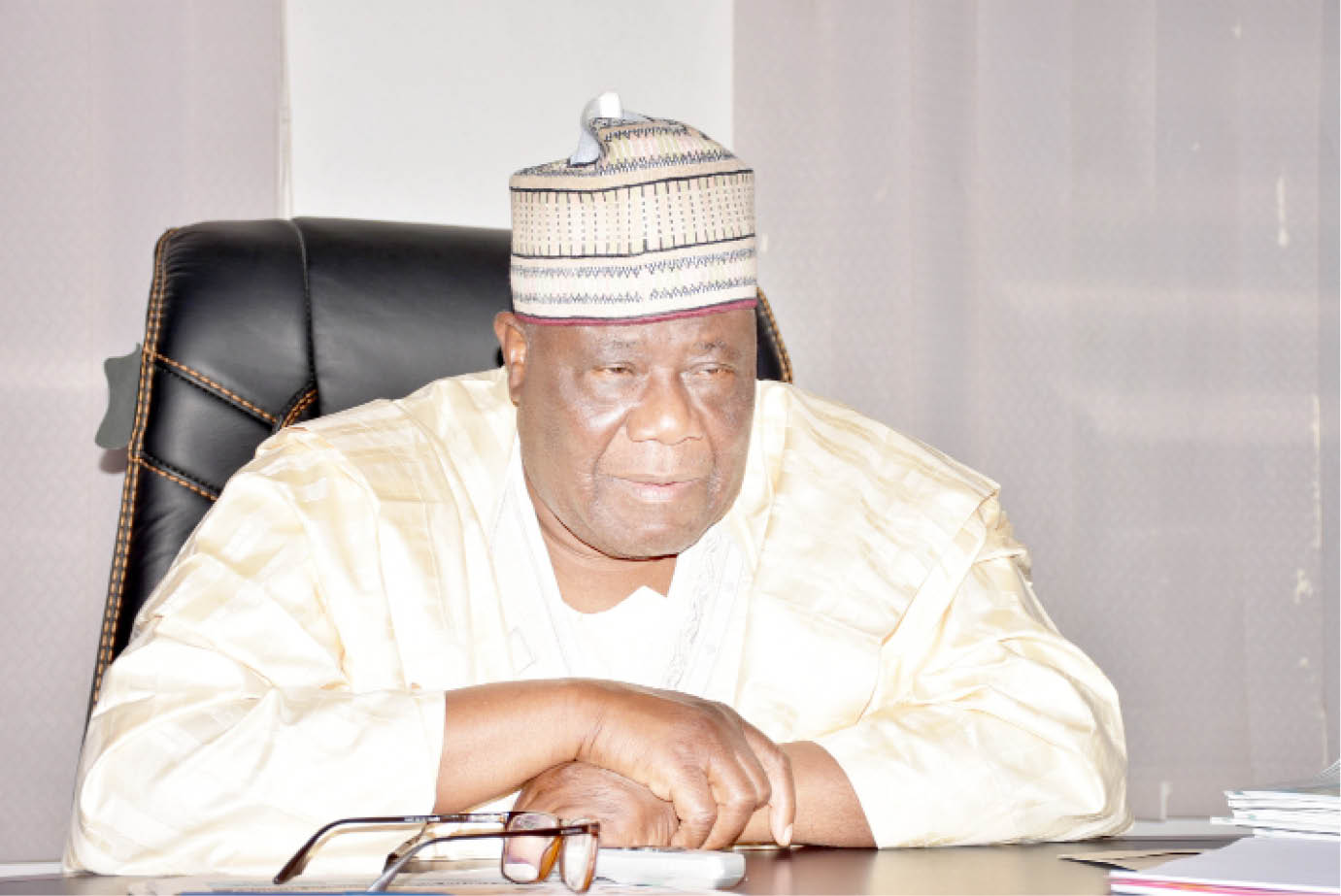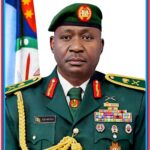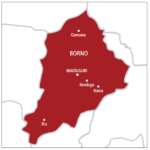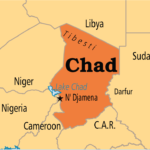Uba Bala Ringim, a retired Deputy Inspector-General of Police (DIG), was a Commissioner of Police when the dreaded Boko Haram was in its infancy in Borno State.
In this interview, he spoke on the steps he took towards curtailing the insurgency at that early stage and how those who succeeded him bungled the efforts.
He also spoke on general policing, including the recent #EndSARS protest across the country, as well as his current experience as chairman of the Jigawa State Local Government Service Commission.
How would you describe your early years in life?
I was born in the mid 1950s. I had primary education at Ringim and attended secondary school at Rano in the present Kano State, after which I moved to the Ahmadu Bello University (ABU), Zaria, Kano campus and graduated in 1978 with a Bachelor of Arts in Education (BA.Ed), with specialisation in Psychology. I did my national youth service in Niger State.
After the youth service in 1979 I joined the Nigeria Police Force as a cadet Assistant Superintendent of Police (ASP).
My first station was the present Katsina State while it was under Kaduna. I rose through the ranks to the position of DIG.
I served for 33 years and retired on December 31, 2010. I engaged in farming until July this year when the Governor of Jigawa State invited me to be the chairman of the State Local Government Service Commission (LGSC).
I accepted the assignment willingly and thankfully. That’s what I have been doing.
How would you compare your point of entry into the Police Force as a cadet ASP and what obtains nowadays?
The only difference is that when I joined, we were only 36 in the whole country, but today, I think 1,000 or more people apply.
However, recently they scrapped cadet ASP because it is like the military’s Nigerian Defence Academy (NDA), where you spend five years and become an officer.
So, the competition is high now. Everybody now wants it, unlike before when very few people wanted to join the police.
I was the first officer with a degree to join the police in the old Kano State. Some people thought that I wouldn’t stay, but I stayed.
Did that have anything to do with the people’s perception of the police?
There were so many jobs available then. Before I completed my youth service, I had seven different job offers, but destiny wanted me to be a police officer.
In fact, all the letters of appointment from different educational institutions and different organisations are still with me.
In those days, before you finished school you already had job offers waiting for you.
When we were at the college, we would wake up early in the morning to do exercise. People believed that those with degrees should not be made to jog every morning.
They felt it was degrading, not knowing that it was useful for the country, you and your organisation. It is something to be proud of.
In terms of having proper representation in the police force, would you say the North lost out in the initial stage?
Yes. Out of the 36 that applied at that time, as I told you, only two of us were from the North – myself from Kano and the other, a friend, Alfa Belel from the old Gongola State, now Adamawa.
The rest were from the South. You can see that people from the North didn’t like the police that time, not that they were not given the opportunity.
You rejected many job offers and joined the police, did your decision have anything to do with “northern arrogance,’’ as people would say?
There’s nothing like northern arrogance. However, in fairness to myself, I could not teach in Minna while I came from Kano.
Whatever I could get in Minna, I could equally get from Kano. That’s the truth about it.
I did not think it was fair for me to leave Kano and start teaching in Minna. That’ was why I didn’t stay there.
So you did not regret your choice of career?
No. How would I regret a positive destiny? And I believe I did the best a police officer could do.
How would you look at the police during your time and now, especially in the light of the present security reality in the country?
The primary duties of the police are still the same. What is changing is the attitude of the people, the so-called modernisation, including the social media.
In fact, there are a lot of things that would encourage people to commit a lot of atrocities.
Nobody knew anything about kidnapping and armed robbery.
Local thieves would just knock on your door, when you heard them you made any sign they would run.
But today, they would knock on your door, and when you ask, they would say “armed robbers, either you open the door or we kill you.’’
It is unfortunate. The rate [at] and sophistication [with which] people are being killed is alarming.
Above all, the level of greed and lack of contentment among people is too much.
People want to be rich overnight, so they do everything within their reach to achieve that.
But if you are desperate to make it in life you would make mistakes; and that is what is happening now.
So many people are bringing a lot of problems in the society.
Another difference is that when we were in service, everything was available.
For example, in the first station I worked in Katsina, we had about six vehicles, but now, you hardly get more than one vehicle in a division.
Secondly, when I was in Katsina, any time I was going to Kaduna for a meeting, any police station I got to, they would provide fuel for me.
All I needed was to sign a log book, stating that I got fuel.
But today, even a commissioner of police in a state cannot give you fuel because it is simply not there.
So, inasmuch as there are a lot of problems in the society, the police are underfunded by the government.
What is your take on the relationship between the police and the public? Do you think officers and men are still acting under the influence of colonial masters?
No; that is not a correct assessment. Looking at the way they are undergoing training these days, they have detached from the colonial period.
So many senior officers have gone worldwide and performed wonderfully.
Policemen are also trained according to their localities. That is why we introduced community policing.
I wrote a book on the essence of community policing.
As a DPO, you are to ask the people what their problems are. This is because locations differ from one another.
The problem you have in zone A may be different from what would happen in another zone. Community policing takes care of that.
You can see that the policemen in Nigeria have since detached themselves from the colonial hangover.
It is true that the colonial masters brought the police, but they now have a different orientation and training.
So if you say they are still behaving like colonial instruments of oppression, you are not being fair to them.
You were a commissioner of police in Borno State in the late 1990s, up to 2002; what is your take on the current security situation in the state?
It is unfortunate that Borno has found itself in such a security situation.
As a commissioner of police, every night I made sure I went round the whole of Maiduguri.
I visited all the police stations in the metropolis every night so that my DPOs would sit up.
That time, you hardly found cases of robbery or killing in Maiduguri. Of course there were robberies along the Maiduguri-Damboa, Maiduguri-Baga roads, but those were almost local robberies.
They were called kwanta, kwanta, the Hausa word for ‘lie down’. Kidnapping and Boko Haram were not there.
All I know is that while I was the commissioner of police in the state, the late leader of Boko Haram, Mohammed Yusuf, used to hold lectures and tried to propagate his mission.
Of course my officers were always there to record his teachings. After listening to such recordings, wherever there was any element of violence, I would take the tape to the governor.
And the late Mala Kachallah would ask, “What do we do?’’
We would call Mohammed and tell him the implication of what he was doing. He would listen to us and stop for some time.
Approach matters. If you see who is violent as a leader, draw his attention and show him the way to go and he would listen to you.
It is not always a matter of force because this thing called belief is very difficult.
Once somebody believes in something, it is not easy to get him/her to take that thing out of his mind.
The approach to convince such a person to change his attitude matters.
That was why we were able to control the situation at that time and it didn’t go far.
In fact, nobody knew that there was anything called Boko Haram.
The way he started, nobody would even take him seriously, but once we called him and cautioned him, it would take him at least three months to do anything again.
So we believed it had gone. But when I left, my successors started noise, and before you could say something, things had gone the way they are.
Are you saying the situation was mismanaged?
Well, there was a problem in the approach.
Mohammed Yusuf was able to gain popularity among ignorant people who were illiterate and probably looking for stipends.
He was able to get hold of them for that long time because they were giving them money. Within a short period of time, he was able to gather so many followers.
Did you make efforts to find out his source of funding?
While we were there he was not dangerous. He was not violent. He was a very easygoing person, up to the time I left.
I left there in March 2002 and the serious problem of Boko Haram started in 2006 or 2007, I think.
Are you comfortable with the way and manner the recent #EndSARS protests across the country were resolved?
I am not satisfied with how the government handled the protest.
Violence will never solve problems in Nigeria or anywhere in the world.
The Federal Government responded by disbanding the SARS and that should have been the end of the whole issue, but unfortunately, it escalated.
Some people believe the Federal Government shouldn’t have given in to such demands within such a short time, what do you say to that?
The government is always looking in the direction of the people’s wishes. Remember that it is a government for the people.
Honestly, very few of the SARS officers misused the opportunity they had.
One day, somebody came to me and said he had a misunderstanding with someone and had taken the person to SARS, just an argument.
I had to call the SARS man and asked why he was entertaining a mere argument, which should not even go to a DPO.
He said he didn’t know and I told him to release that man. The policeman who took that man to the office should be dealt with.
I don’t know what happened after that because I was no longer in service.
The #EndSARS problem was most unfortunate; nobody expected that to happen.
There is a high level of insecurity in the country at the moment, especially in the North, so much that some people are insinuating that there is a complete loss of direction on the part of the government and security agencies, what is your take?
It is the fault of the people. The people are not willing to cooperate to help the security agencies.
Are the criminals surviving on an island? The answer is no.
They live among us and the people know them, but they don’t want to report to the security agencies.
It is not true that anybody who reports a criminal would be killed. You see, the people have to come out and defend themselves by helping the government and security agencies to fight this nonsense.
The rate of kidnapping on a daily basis is becoming alarming. Nobody is safe now.
The people should cooperate with law enforcement agencies by coming forth with useful information.
The situation will be resolved as long as everybody is willing to come out and give credible information.
If you don’t report incidents of insecurity when it is happening to somebody near you, tomorrow, it may be your turn.
Having come back home, will it be safe to refer to you as a local politician?
You can call me whatever you like. I am here as the chairman of a commission.
Primarily, I have found out that there are lots of problems in our local government system because I was able to tour all the 27 local governments in the state.
I have seen that there’s room for improvement.
Some members of staff were not even going to their offices. I called one of the directors of administration here in Dutse and he said there were some people that had not been [to the] office for two years; and they are getting salaries.
How do you want to handle such cases? We have to do something about it.
When I went to Maigatari Local Government on tour, I told the chairman that the number of people I saw in the office was very low and he told me that it was a market day, so virtually everybody had gone to the market. The time was 11am.
We are not saying people should not engage in trading or farming, but primarily, you are a civil servant.
If you don’t want to be a civil servant, for crying out loud, resign.
Other people are ready to take the jobs. We are putting things in order; it will not continue.
In the next six months you will see the difference. I will not take that.
Civil servants have a way of circumventing every rule; are you talking as a policeman or politician?
Whether as a politician or not, the whole thing is about honesty and sincerity.
If politicians could be honest and sincere, things would change in this country.
Whether as a policeman or politician, or whatever, I believe I have come to make corrections.
I believe the governor brought me here believing that I can improve the system.
If I wouldn’t be able to do it I will leave it and walk away.
He believes that from my experience I can contribute to make things right. And things must change, I am telling you.
If there’s an order that some people should not be paid, you would see that things would change.
I have opened a register for all the local governments. You must come and sign, and at the end of the month we will not pay you until we are sure you were present.
I want it to work. We will discover those who are willing to work.
In one of the local governments, someone told me that he stayed in Abuja with his wife, and he is a staff in the local government.
And he expects a bank alert at the end of the month.
I said he should choose what to do. If he would come from Abuja to sign every day, fine.
In another local government, I was told that members of staff were used to trading that they would rather resign and concentrate on their businesses.
I said it was fine if they preferred their businesses.
Nobody is forcing them to work in the local government. It is either you work or you leave.
How do you relax?
Everybody decides how they want to work. The fact that I am serious about this job does not mean that I have no time to relax, sleep or play.
Sometimes I spend the whole night in the office, it depends on the circumstance [under which] I find myself.
If something comes up urgently you have to stay and do the work.
Staying in the office late is not new to me. That is why files do not spend the following night in my office.
I must treat the files because they are about other people’s fates.
Somebody is looking for either promotion or entitlements. Why would you keep somebody’s file with you for two or three days, or even one week, but you want your own to be treated immediately?
If you do that you are not fair to your conscience. You need to be fair to everybody and God will be fair to you.
What advice do you have for Nigerians, especially in the face of the current security situation in the country?
Let us cooperate with one another and be our brothers’ keepers.

 Join Daily Trust WhatsApp Community For Quick Access To News and Happenings Around You.
Join Daily Trust WhatsApp Community For Quick Access To News and Happenings Around You.


